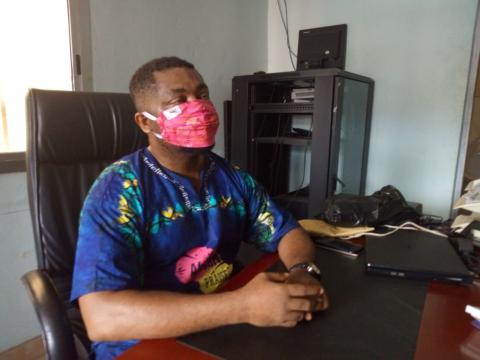By Mohamed Jaward Nyallay
Journalists from different constituent bodies in Sierra Leone have agreed to mount pressure on government to complete the process of repealing the obnoxious Criminal Libel law in the country. They reached an agreement in a consultative meeting that was organized by the Media Reform Coordinating Group (MRCG).
The meeting held on Wednesday July 8 brought together MRCG affiliate bodies like the Sierra Leone Association of Journalists (SLAJ), Sierra Leone Reporters Union, and the Guild of Newspaper Editors. The discussion was centered on finding a way around the deadlock that the bill to repeal the law has been in since last year.
Last month, the bill was kicked out of Parliament after been in the house since December 2019. Leader of Government Business in Parliament, Martin Nyuma, told Politico back then that the bill was withdrawn because the time to deliberate on it, which was three months, had elapsed.
On Wednesday two of the three action points reached at the MRCG meeting were: “all media institutions to intensify publication and broadcast on the repeal process and to remind the Office of the President for the repeal he promised during his campaign to journalists.”
The repeal document has also been backed with a reviewed Act for the Independent Media Commission (IMC). The review is part of ways to assure lawmakers of a safeguard that will be in place in the post repeal era.
During the December hearings, lawmakers were adamant that Part 5 of the Public Order Act, which deals with the Criminal Libel Law, will only be repealed if SLAJ and other media stakeholders guaranteed that a safeguard is in place to deal with “reckless journalism”.
SLAJ has since gone on to form a committee to lobby lawmakers to smoothen the repeal process, something which has divided opinions among journalists. Like this, the request of MPs to seemingly exchange the repeal law with an “empowered” IMC Act has not gone down well with some either.
Veteran broadcaster, Joshua Nicol, said there is no need for any safeguards to be put because there are already existing laws which can protect the rights of individuals against libel.
“This was an election promise by the President, that if he wins he is going to repeal the law. It is the job of the legislature to see that the legislative agenda of the executive is executed. It is not their responsibility to say go and give us replacement when we already have Act No. 32 of 1961 which is civil. What we can do is we can look at the civil law an increase the threshold for the fines to be levied on journalists who will be recalcitrant. What we can also do is to leverage this with the Bankruptcy Act,” Nicol said during the meeting.
As part of putting safeguards in place, SLAJ President, Ahmed Sahid Nasralla, said the association’s Disciplinary Committee has been reconstituted and strengthened to act when cases are brought.
“This body will also be proactive. As part of its work it will also embark on media literacy programs. For the very first time we now have members of the public who are now part of this disciplinary committee,” Nasralla said.
The consultative meeting by MRCG will also be taken to other regions of the country to gather as much views as possible before the repeal process is restarted.
Chairman of MRCG, Francis Sowa, said: “This is one of the reasons why MRCG was formed, to push for the reform of some of these laws. This support is to heighten advocacy for the repeal process to be completed. We believe consultations like these will go a long way to complete this process, that is why we have even drafted the support of civil society organizations.”
A pre-legislative meeting with a cross section of parliamentarians has been scheduled for Monday, 13th July, during which all issues are expected to be properly discussed between journalists and the legislature.
Copyright © 2020 Politico Online








